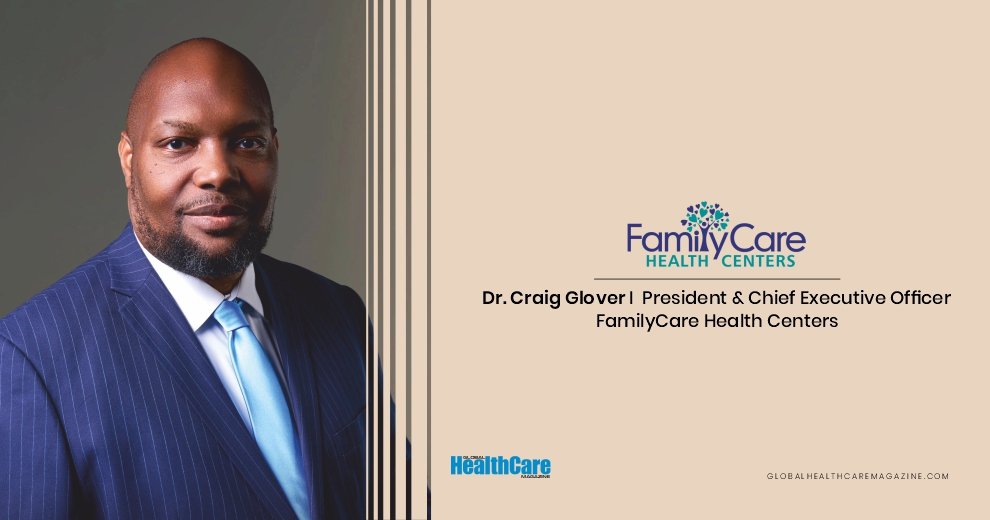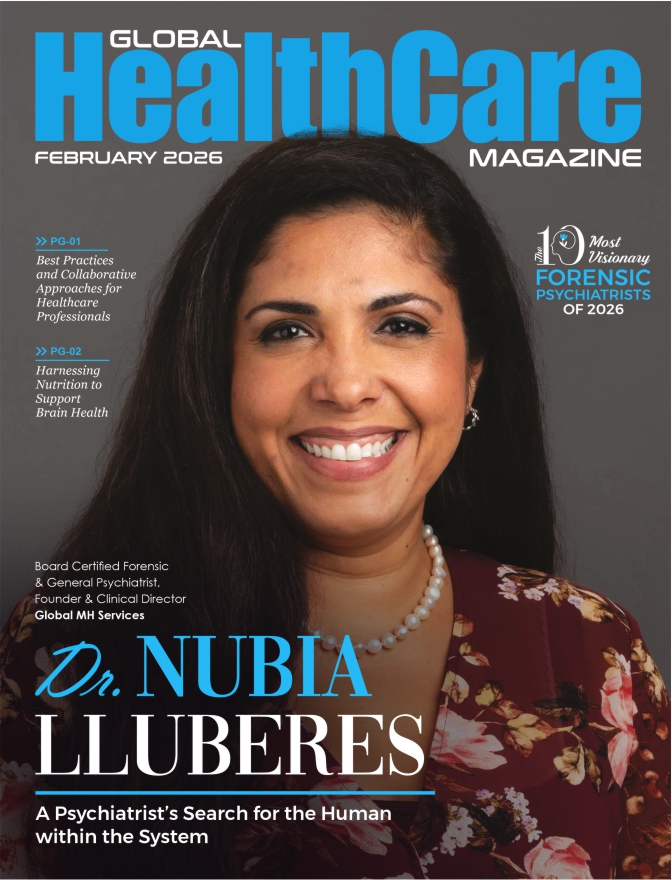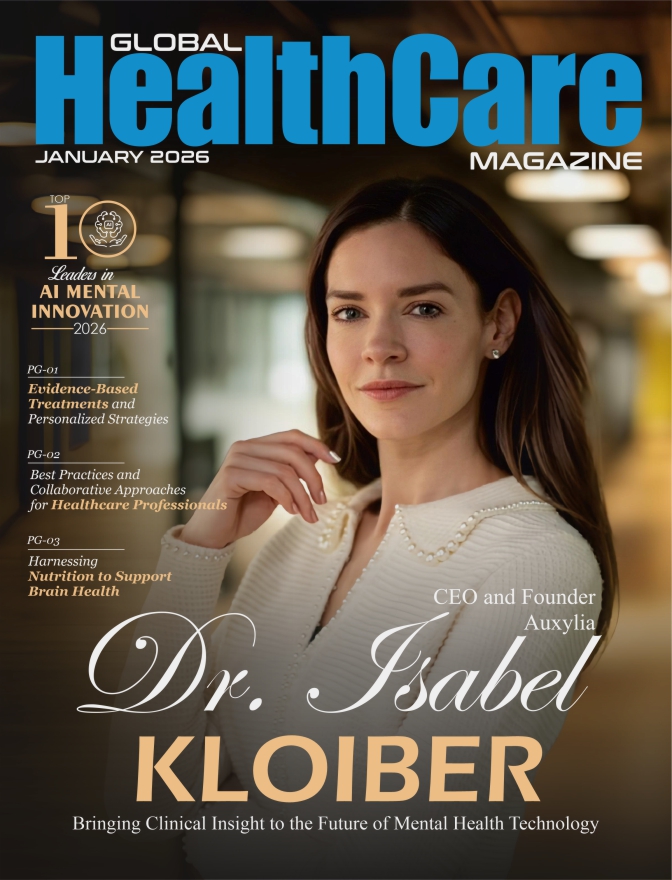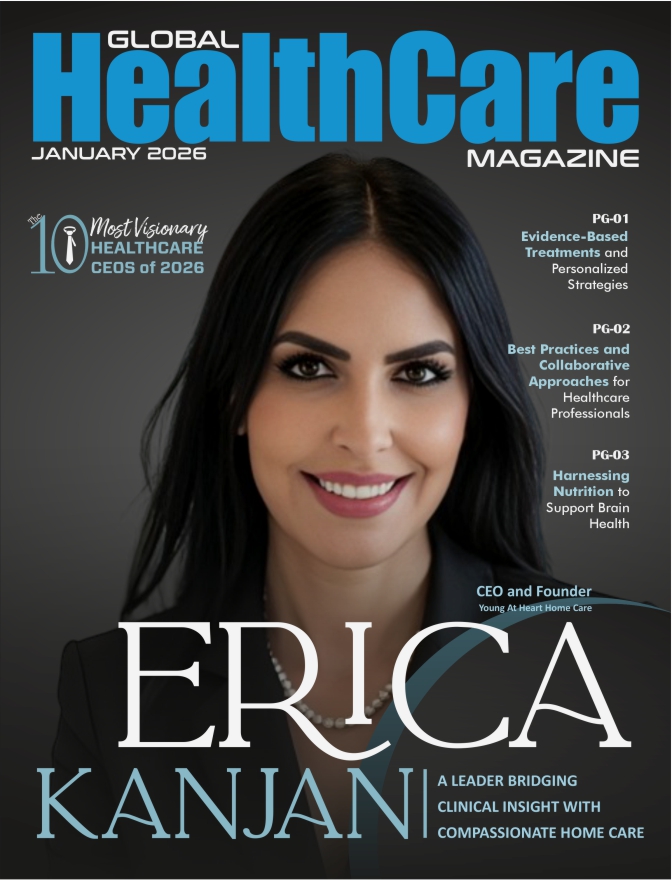In the summer of 2004, Dr. Craig Glover, then the new chief information officer for a St. Louis based health center, found himself reviewing an asset transfer. The city’s Department of Health was divesting two of its clinics to his organization. As he looked over the details, one of the addresses sparked a flicker of recognition. It was a simple brick building, a place of clean, institutional hallways and the faint, antiseptic smell of hope. It was the very clinic where his mother, a teenager navigating the challenges of single parenthood in a low income household, had taken him for care as a child. The moment was not just a coincidence. It felt like a calling. It was the universe confirming, in the most personal way imaginable, that he was in exactly the right place, doing exactly the right work.
This is the story of Dr. Craig Glover, a man whose life has come full circle, from a patient in the national safety net to the President and CEO of a major Federally Qualified Health Center (FQHC). His journey from a humble beginning in St. Louis to the highest levels of education and career success is the quiet engine that powers his leadership. He is a rare blend of foresight and mission, a strategist who sees the intricate interconnections of the entire healthcare ecosystem, from the boardroom to the exam room. He is what he calls a thoughtful systems thinker, but with a profound difference. His systems are not made of code or flowcharts. They are made of people. And for Dr. Craig, the ultimate goal of any system is to remove the barriers that stand between a person and a life of dignity, health, and opportunity.
A Pathway to Dignity
Today, Craig leads FamilyCare Health Centers (WV), a sprawling network of 26 locations across West Virginia that serves as the primary medical home for approximately 45,000 people. The numbers are staggering. His team manages around 141,000 patient visits annually. But the numbers do not tell the whole story. The story is in the services, a carefully constructed web of care designed to meet people where they are, clinically and socially.
FamilyCare was founded in 1989 by Dr. Martha Cook Carter as a women’s health provider and birth center. That legacy remains a cornerstone of its work. Its Prenatal and Maternal Health program, with a midwifery led birth center, provides a continuum of care that promotes safe births and patient choice. From there, the system follows the life of a family. The Pediatrics and School Based Health program embeds care directly into more than 30 schools, serving over 5,200 students last year. This simple act of co-location has a cascading effect. It improves student attendance, keeps parents from having to leave work for appointments, and closes critical gaps in immunizations, sports physicals, and urgent behavioral health needs.
As patients grow, the system grows with them. The Adult Medicine programs provide team based management for chronic conditions like diabetes and hypertension, reducing avoidable emergency room visits. Behavioral health and psychiatry are integrated directly into primary care, a crucial step in normalizing mental health and shortening the time to treatment. Dental and vision services provide care that directly impacts a person’s ability to learn and find employment. And a network of urgent care centers provides walk-in access for acute issues, diverting non emergencies from already strained hospitals.
At the core of it all is Craig’s unwavering belief that where a person lives, works, or was born should never determine the quality of care they receive. This philosophy is most tangible in FamilyCare’s approach to social services. They have built programs that address the non-clinical barriers that so often drive poor health outcomes, like navigation for transportation, insurance enrollment, and health literacy. They have instituted “food as medicine” initiatives, recognizing that you cannot manage a chronic illness on an empty stomach. His mission, as he states it, is simple. Remove barriers, expand access, and create environments where both individuals and communities can flourish.
Designing Governance around Strategy
While his heart is firmly rooted in the mission of community health, Craig’s mind operates with the precision of a corporate strategist. He is deeply involved in the mechanics of governance, believing that an effective organization is built upon a foundation of accountability and strategic alignment. For him, a board of directors should be designed around the organization’s strategy and risk.
It begins, he explains, with a skills matrix. This is not just a checklist of professions. It is a translation of the strategic plan into the specific expertise and behaviors required to achieve it. This matrix should define the need for leaders in finance, clinical quality, population health, cybersecurity, and law. This document then becomes the driving force behind recruitment, committee placement, and the annual board education agenda. The by-laws, he says, should function as the “operating system for accountability,” preserving the consumer majority required of FQHCs while strategically engaging subject matter advisors.
Craig guides his board at FamilyCare with this disciplined approach. He uses a standard monthly agenda so directors know what to expect. He ensures they have the data needed for timely, well informed decisions. The board is fully integrated into a three year strategic planning cycle, with management developing annual implementation plans that the board approves. Every strategic initiative has a matrix of action items, and he provides quarterly updates on their progress. It is a system designed for clarity, engagement, and results, ensuring the organization remains steadfastly aligned with its long term goals.
More Than a Missed Appointment
Nowhere is Craig’s systems thinking approach more evident than in a recent breakthrough at FamilyCare. His team noticed a troubling pattern in their data. A specific subset of patients had a high rate of no show appointments and was showing weaker control over their chronic diseases. The conventional view might have been to label these patients as non-compliant. But Craig saw it as a system problem, not a patient problem.
He guided his team to merge the clinical information and visit patterns with the social determinants of health (SDOH) data they were already capturing in their intake workflows. A clear and powerful link emerged. Patients who screened positive for food insecurity were the same patients who were missing appointments and struggling with their health.
The solution was immediate and systemic. They embedded the screening and closed loop referrals directly into the electronic health record. They trained the front desk, nursing, and social work teams on the new protocols. They stocked every single site with three day emergency food boxes, ensuring no one left a visit hungry. Social workers now provide warm handoffs to community resources for longer term support. The impact was tangible. Visit adherence improved. Patients were more engaged in their care plans. And the data began to show improved trends in chronic disease management among the patients receiving both clinical care and food support. It was a powerful reinforcement of a core belief. Basic needs come first.
Everyone is Welcome
This ability to see the whole system also applies to how Craig approaches business development. For years, FamilyCare had offered urgent care services, but public perception was that they were only for existing patients. When an opportunity arose to expand through a partnership with a local pharmacy chain, he knew a simple expansion was not enough. They needed a new brand.
He led the creation of ConvenientCare. The name was intentionally simple. The visuals and signage were aligned with a new, inclusive identity. The messaging was relentless on one single point: everyone is welcome. The marketing strategy shifted to meet people where they already were, including at the pharmacy partner’s locations.
The results were immediate. In the first year of operating as ConvenientCare, the service saw a significant rise in new patients who had no prior relationship with FamilyCare. Based on that success, they have already expanded to a second location and plan to add more. It is a clear example of Craig’s ability to combine mission with market savvy, turning strategy into a scalable service that expands access for the entire community. This intrapreneurial spirit is also driving the launch of PrescriptionCare, a full service retail pharmacy set to open in the fall of 2025, which will give FamilyCare another powerful tool to help patients manage their health.
Credibility without Defensiveness
Craig’s journey has not been without its personal challenges. He has often had to lead organizations where most of his colleagues were of a different race, or manage teams where he was the youngest person in the room. He recalls a subordinate once telling him, “My grandchild is older than you are. I’m not sure if I can follow your lead.” These dynamics, he acknowledges, can invite bias or skepticism.
His approach to tackling them reveals the core of his leadership style. He centered conversations on his contributions, focusing on clear goals, measurable results, and his unwavering support for his team’s success. He consciously avoided spotlighting differences, keeping the team’s attention on their shared mission. Above all, he stayed authentic, leading with consistent values and transparent decisions. This approach, he says, “built credibility without defensiveness, strengthened trust, and kept teams aligned on what matters: delivering for the people we serve.”
This quiet strength and emotional intelligence are what he hopes to bring to a new arena. He is preparing to serve as an independent director on a private healthcare or health tech board, where he believes his unique lens as a safety net CEO can add immense value.
Outside of work, he recharges not by chasing a “perfect” balance, but by running what he calls a “sustainable rhythm.” This involves tight meeting discipline, predictable time off, and leading by example in setting boundaries. That rhythm allows him time for the hobbies that sharpen his mind and restore his spirit. Golf, he says, sharpens his patience and strategy. Marksmanship reinforces his focus. And as a devoted NFL fan, he is slowly working through a long term goal to visit every stadium in the league.
It is a life of intention, focus, and quiet dedication. When asked for a personal mantra, his answer is a perfect encapsulation of his entire journey. “Lead fairly, act kindly, and think strategically.” For Dr. Craig Glover, the boy from the St. Louis clinic, these are not just words. They are the operating system for a life spent turning a personal mission into measurable outcomes, one patient, one system, one community at a time.
Quote

Also Read: The Five Most Influential FQHC Leaders to Watch in 2025













